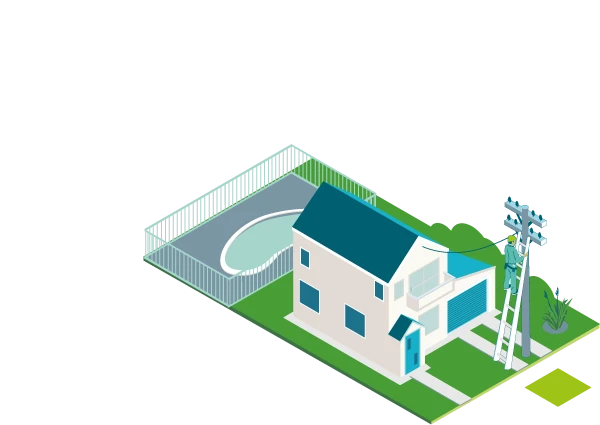Find out who is responsible for paying water and wastewater charges.
Landlords must make sure enough water is available at their rental properties. If there is no piped water supply, the landlord must make sure enough water can be collected and stored.
If the property is part of a unit title complex, the body corporate rules form part of the tenancy agreement. Landlords should tell tenants if the rules regulate water supply among the units.
Body corporate rules(external link)
Who pays for fixed water charges
Water suppliers charge for wastewater in different ways, which varies around the country. In some cases, a portion of the water charges may include a fixed charge for incoming freshwater or outgoing wastewater.
If the supplier charges a fixed amount for water regardless of whether the property is occupied or not, the landlord is responsible for paying those charges.
If the supplier only charges a fixed amount for water when the property is occupied, the tenant is responsible for paying those charges.
Who pays for metered water charges
A metered water supply allows a water supplier to charge for the amount of water used. The tenant pays for any water charges if:
- the property has a separate water meter
- the water supplier calculates water charges based on metered use
- the charges can be exclusively attributed to the tenant's use of the property.
Otherwise the landlord pays for the water charges.
Some suppliers calculate wastewater based on how much metered water they supply to the property. The landlord can ask the tenant to pay for the wastewater they produce in this situation as the charge is attributed to the tenant's use.
How to pay
The landlord must pay the whole water account and then ask the tenant to reimburse them. Landlords should send the tenant a copy of the bill on a regular basis to prepare the tenant for paying (landlords can remove personal details before sending).
The water account can’t be in the tenant’s name. Some water companies will provide a copy of the account to the tenant with the landlord’s permission.
If water charges aren’t paid
If the water is disconnected because the landlord hasn’t paid, the landlord is responsible for reconnection.
If the tenant doesn’t pay, they are in breach of their tenancy agreement. The landlord can issue a notice to remedy to give the tenant a set amount of time to pay. If they still don’t pay, the landlord can apply to the Tenancy Tribunal to get it sorted.
Notice to remedy template [DOCX, 23 KB]
Tank water
If the water supply is from a tank, the landlord should provide a full tank at the start of a tenancy. The tenancy agreement should record that the tenant will arrange and pay for any refills.
Water tanks need to:
- be an appropriate size. An average-sized house should have a tank of about 5,000 gallons (22,500 litres)
- be properly connected to a roof of reasonable size so rainwater can top up the tank
- have no leaks or contamination.
General maintenance of the pump is the landlord’s responsibility. If tenants damage the pump (e.g. by letting the pump run when the tank is empty) they may be responsible for the cost of repairs. The landlord should provide written instructions on how the tank water system works.
Last updated: 12 Poutūterangi 2021


